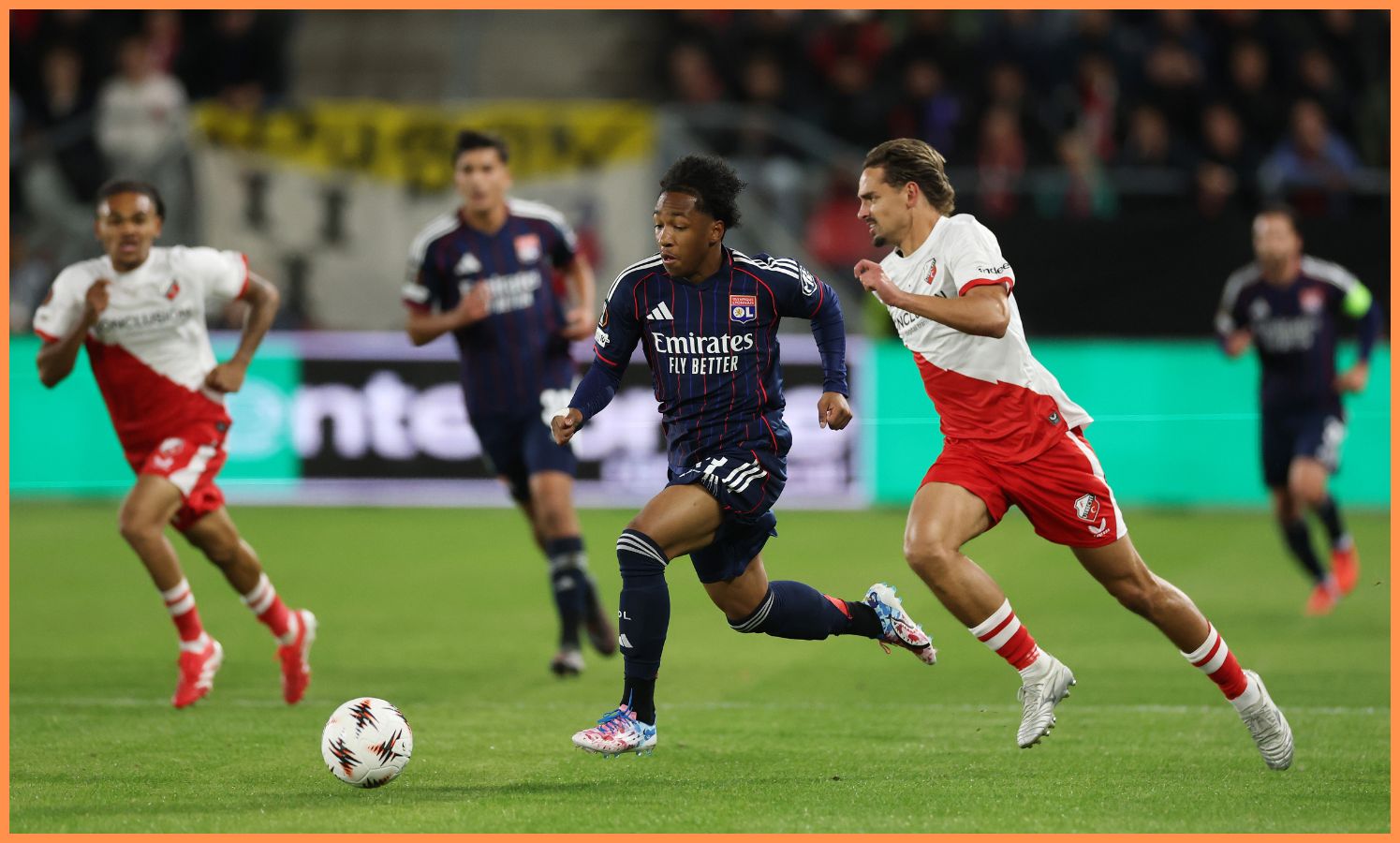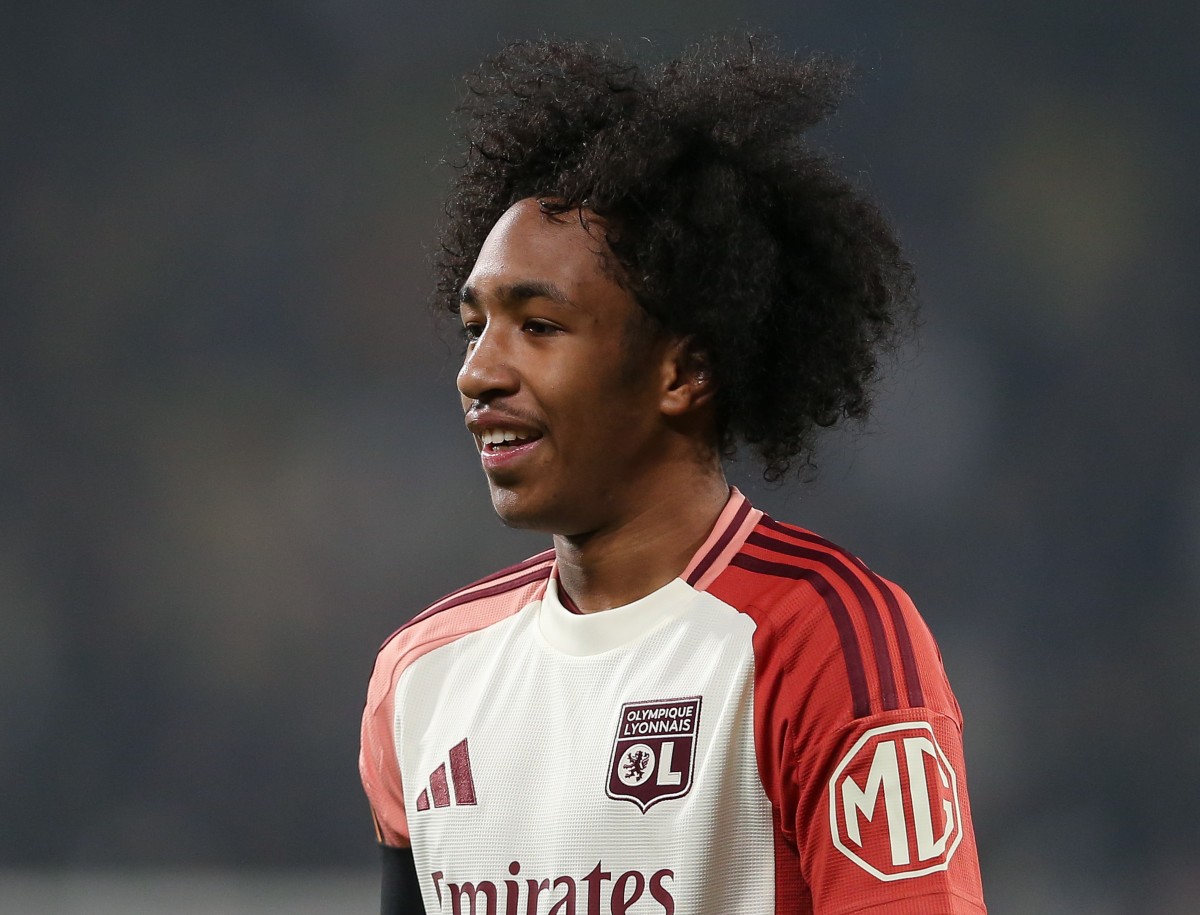
Malick Fofana in action for Lyon (Photo by Lars Baron/Getty Images)
The agent of Lyon winger Malick Fofana has discussed his client’s future and talked up a potential transfer to Liverpool and other top clubs.
The highly-regarded young Belgium international has shone during his time in Ligue 1 and it seems only a matter of time before he secures a big move for himself
Chelsea are one of Fofana’s admirers, as recently reported by CaughtOffside, and it seems the player’s representatives are eyeing up Liverpool, Manchester City and Bayern Munich as potential destinations.
Liverpool spent big on new attacking players in the summer, bringing in Alexander Isak, Hugo Ekitike and Florian Wirtz, so it remains to be seen if they’ll be back in for someone like Fofana that soon.
Still, Fofana’s agent’s comments will certainly raise one or two eyebrows.
Malick Fofana transfer update from his agent
Frederico Pena, the general manager of Roc Nation Sports, who represents Fofana, has praised Fofana and talked him up for a big future at an elite European club.
Speaking to HLN, he said: “This is the season in which Fofana wants to show himself to the world, especially at the World Cup.
“If he succeeds, he can move from Lyon to a top 10 club.

“At Roc Nation, we strongly believe in him. Liverpool, Bayern, Manchester City, those are the clubs where he belongs.
Pena added: “We tracked down Fofana through our own scouting.
“An extraordinary talent who is gradually ready for a transfer. Next year, the World Cup will take place in the United States, the birthplace of Roc Nation.
“We want to guide players who can shine there. Fofana fits that profile perfectly.
“We want to get Fofana out of his shell. Listen, he has the potential to be a world star like (Kylian) Mbappe, (Lamine) Yamal or (Kevin) De Bruyne, but then you also have to become a personality off the field.
“We want to work on that together.”
Will Liverpool move for Malick Fofana?
As mentioned above, Liverpool aren’t exactly short of quality and depth in attack, so it remains to be seen if Fofana would be a priority for them any time soon.
Having said that, that hasn’t stopped links with other big names in that position, with both Michael Olise and Antoine Semenyo mentioned as targets to watch in a report from the Daily Mail.
If Fofana carries on performing as he has, then he’d surely be someone under consideration by LFC as well.
Chelsea will surely also be in the mix if they can’t land some of their other targets, with Fofana once again fitting the bill for the Blues as they aim to recruit and develop the best young players from around the world.